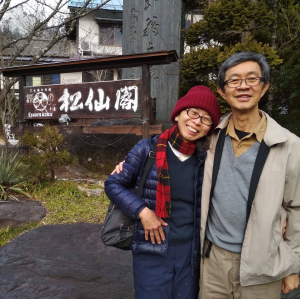Parable of the sower (Mark 4: 1-20) / How to be productive in the kingdom
Introduction:
Today, we will look at a well-known and familiar parable. Read Mark 4:1-9 first. (vs 13-20 for context)
A parable is a teaching method which Jesus uses frequently to teach people who want to follow him. It uses everyday situation to teach life lessons. Teaching from the parable has deep implications for the wide audience – of those who seek and those who follow.
From the Gospel perspective, our heart’s readiness to receive the Word is crucial to those who have yet to believe. While in the Christian living perspective – our heart’s receptiveness to the Word determines our actions/choices – which affects the way we live our lives before God and others.
Why is Jesus’ teaching so simple and yet so profound? Jesus said, “He who has ears to hear, let him hear.” So, it’s not about how much we know. Rather, it is about how well we hear. Therefore, each of us sitting here today have the power to decide how we want to listen to this parable of Jesus.
“Listen!” Jesus said, as he began the parable. Oftentimes, we think we have heard about this parable already, so we assume we already know. All the four soils heard the word but only one of them grew to bear fruit while the other three did not.
Jesus has the word of life. Do we all seek to listen to Him? Only He can answer the deep questions we have about life’s purpose. The disciples also did not understand the parable without Jesus explaining it to them. Likewise, for us here in the 21st century, the Holy Spirit will help us understand this parable. We need to listen well to Jesus so that we will not miss the ‘gold and honey’ as mentioned in Psalm 19:10. (‘His word is more precious than gold, than much pure gold; they are sweeter than honey, than honey from the comb.’)
The Word or the seed is the most important thing in this parable apart from the soil. Without the Word, no one can become a believer; neither can any disciple of Jesus grow in the faith. Without the right soil condition nothing will also grow well. We need to have an open mind and heart if you want to hear Jesus speak to us through the Bible. We are reminded in Deut. 4:29 that if we seek God with all our heart and soul, we will surely find Him.
Let us now examine the 4 soil conditions in this parable as explained by Jesus to the disciples:
- Seeds that fell along the path
vs15 – “Some people are like seed along the path, where the word is sown. As soon as they hear it, Satan comes and take away the word that was sown in them.” In Luke, it includes the phrase, ‘that they may not believe and be saved’. The key word here is ‘Satan’.
So, this soil condition can apply to someone who has yet to believe in Jesus. Or, it can also apply to followers of Jesus like many of us who have somehow let our hearts grown cold toward listening to Jesus. Our inability to hearing Jesus is distraction. When we are distracted or don’t care to hear, Satan takes away God’s Word from us.
Don’t let the Word be snatched from us. When we fail to be aware of our enemy, who is the evil one, we become careless and miss out on what God wants to tell us. So, whether we are reading the Bible or listening to a speaker, we need to listen well; otherwise, the enemy will take it away. Our enemy doesn’t want more people to believe in Jesus; neither does he want Christians to grow.
- Seeds that fell on Rocky soil
- 16-17 – “Others like seed sown on rocky places, hear the word and at once receive it with joy. But since they have no root, they last only a short time. When trouble or persecution comes because of the word, they quickly fall away.” The key word is ‘trouble’ or ‘persecution’.
This group of people are happy when they first hear the good news about Jesus. Soon, when they experience trouble due to their believe and practice, they give up on Jesus. Many of us in Asia, whose household worship idols or other beliefs, do experience some kind of persecution. We must ask God for strength to stand firm and grace to love those who oppose our faith.
The main reason why some fall away is because they have no root and therefore endure only a short time. Here, we see the reason why having a firm foundation in our faith is necessary for us to endure trouble or persecution. If we are properly built up in their faith, we will see more growth in our churches. We who are in the church must be diligent in the work of follow up and discipleship. Jesus modelled for us how he spent time to teach and guide his disciples while he was on earth. So, we must not neglect discipling in order that believers are deeply rooted in their faith that they may not fall away.
- Seeds that fell among thorns
vs 18-19 – “Still others, like seed sown among thorns, hear the word; but the worries of this life, the deceitfulness of wealth and the desires for other things come in and choke the word, making it unfruitful.” The key phrases are ‘the worries of life’, ‘deceitfulness of wealth’ and ‘desires for other things’.
The three areas of life mentioned in this Rocky soil choked our spiritual life so that we do not hear God anymore. We no longer put priority on our walk with God. We will end up not listening to God but only to our own voices.
We must learn to listen to God in the quietness of daily living or time away in silence.
Matt. 6:6 teaches us about how we should pray. It talks about going to our closet and pray alone, without anyone knowing that we are praying. Unless we cultivate time away from the busyness of life to have time alone with God to hear Him, we will not learn what it means to hear his voice.
Let’s analyse each of the specific thorns we face:
- worries of life / cares of this world
As long as we live on earth, we will always have to face these. What do we do? Try harder? What happen when we focus more and more on our worries? We will have no peace within us. The Apostle Peter reminds us in 1 Peter 5:7 to cast our cares and worries on Jesus. Only then can we begin to live life with peace in our hearts, trusting in Jesus.
- Deceitfulness of wealth
When the Bible talks about wealth, it is always on the negative. The Bible warns us about the danger of wealth. Wealth can deceive. The more we have, the more we want. We feel we don’t have enough; sometimes, we even feel we deserve to have. Our focus is on ourselves.
When we begin to focus on others, we will learn to give to others who are in greater need. And this will free us away from wealth having a hold on us.
- Desires for other things
Here it talks about contentment. Very often we are not content with the things we have whether it is our smartphone, our car or our home. Because we think we don’t have the best of things or we are depriving ourselves of something better. Paul in Phil. 4:11 says, “..for I have learned to be content whatever the circumstances.” The apostle Paul comes from a rich family and so he knows what it is like to have abundance. At the same time, after he became a Christian, he did not rely on his wealth. Instead, he worked as a tentmaker sometimes to support himself. We all must learn to manage this desire of ours so that it does not have a hold on us.
- Seeds that fell on Good soil
Vs.20 – “Others, like seed sown on good soil, hear the word, accept it, and produce a crop – some thirty, some sixty, some a hundred times what was sown.” The Key words here are “accept” and “produce”.
I like how this is stated in Luke 8:15 where it says ‘the seed on good soil stands for those with a noble and good heart’. And it further add ‘…by persevering produce a crop’.
In order for someone to retain the word in him, he needs a noble (or honest) and good heart. The heart is the most important part in us, which will make the greatest difference in how we accept the Word. If we are always teachable, then we will learn much more, even from familiar passages like this parable.
What does the Bible tells us about our heart? Let’s read Jeremiah 17:9. It says that our heart is deceitful. Now let’ read Prov. 4:23. The heart is a spring of life. Therefore, we must ask God for the wisdom to train our heart to be noble and good so that it does not drift toward deceitfulness but toward fruitfulness.
The other word is persevering, a trait which all of us need to learn, because many are prone to give up in the face of life’s difficulties. Just as Jesus endured the cross for our sake, so we must also be willing to endure all things for his sake. Life is not about having it easy all the time. Difficulties teaches us to put our trust in God when we are most prone to trust ourselves.
The final word we want to look at is ‘produce’. Being able to be productive and fruitful comes from having a noble and good heart. Note here that the harvest is plentiful for the good soil. Do we want to be productive? We need to have a noble and good heart.
What does it require of you and I to have a noble and good heart?
To be the good soil requires us to have three attitudes – humility, surrender and prayer.
Humility – Our greatest obstacle to a noble and good heart is our pride. We always tend to think we can do it on our own. We want to do it our way, but we fail to understand that we need to rely on God. Without God helping us, we cannot keep our hearts noble and good. Only God can do it for us as we come to him daily. It is a daily process.
Surrender – By coming to Him daily in humble surrender, we learn to depend on him who knows us best. As we sit silently before his presence, we learn to listen to Him as we read the Bible and allow the Holy Spirit to speak into our hearts. As we have read earlier, our hearts tend toward deceitfulness. We need His help to make it noble and good.
Prayer – We need to ask God to help incline and enlarge our heart toward Him. We need to ask Him for understanding as we read. We need to ask Him to make us diligent to keep His word. We need to ask Him to pour light on the path of our life. We need to ask Him to shield us from every kind of distraction. Finally, we need to ask Him to keep his promise to us. That is what being dependent on Him looks like!




